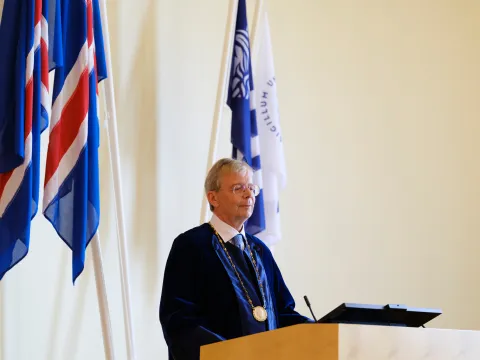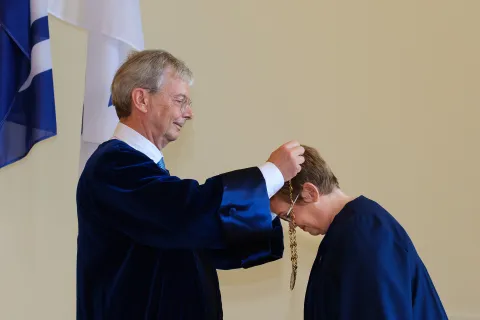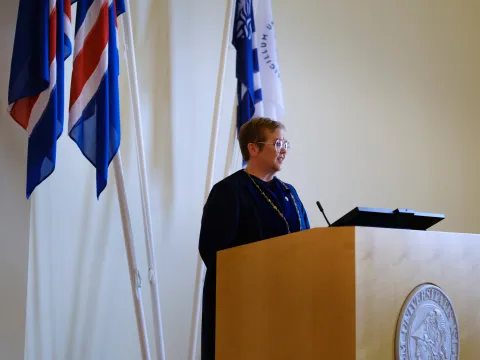
- Society without a fully funded university is like a rudderless ship. These were the words of Silja Bára R. Ómarsdóttir, the newly appointed Rector of the University of Iceland, during the formal handover ceremony held at the university today.
"Investment in higher education is one of the best investments a society can make. A fully funded university sector is thus a key to prosperity and social wellbeing. Adequate funding is essential to enable the University of Iceland to fulfil its diverse legal obligations and societal roles without compromising the wellbeing and endurance of its staff. Adequate funding is a prerequisite for advancing research, education, and innovation; the pillars of any nation's prosperity and welfare. A society without a properly funded university is like a rudderless ship."
These remarks were made by Professor Silja Bára R. Ómarsdóttir of the Faculty of Political Science in her inaugural address as Rector of the University of Iceland, delivered in the university’s Ceremonial Hall before a large audience. She formally received the Rector’s Chain of Office, the symbol of the office of rector, from the outgoing Rector, Professor Jón Atli Benediktsson of the Faculty of Electrical and Computer Engineering, who has served in the role for the past ten years.
The Ceremonial Hall was filled for the occasion, with guests including the President of Iceland, members of the Icelandic government, former presidents, former rectors, and numerous staff and friends of the university.
Trust within society the most valuable asset
The ceremony began with a speech by outgoing rector Jón Atli Benediktsson, who expressed his gratitude to staff and students for their fruitful collaboration. He reflected on the progress and wide-ranging developments at the University of Iceland during the first quarter of the 21st century, highlighting how strategic planning within the university had led to significant achievements in research, doctoral graduations, research funding, and international research collaboration. He noted that the university’s most important step in international engagement in recent years has been its role in the Aurora, a collaborative partnership of research-intensive European universities, with the University of Iceland as a founding member. Jón Atli led the network for four years alongside his duties as Rector.


